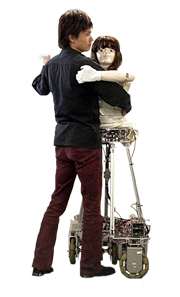
home > cflow journal > issues > 2010
cflow journal - issue 2010-1
The cflow journal is a curated space of art and media theory and debate, edited and curated by code flow. While it was planned, and substantial work was done on its concept, in 2006 already, it got delayed by other projects.
If you would like to receive further information, please let us know at <flow(attention)code-flow.net>.
A publication by code flow
ISSN 1661-7959
Throughout history, technologies have shaped people's lives and fundamentally changed social interactions, but also the image we have of the world and of ourselves. They are perceived as having made certain tasks easier: When is the last time you've cleaned your entire home without a vacuum cleaner? Some are clearly seen as instruments of control: George Orwell's 1984 has brought the image of Big Brother into popular awareness. More subtly, autonomist authors have focused their attention on waves of technological innovation as attacks on people's lives, as strategic moves to break up barriers to capital accumulation that tend to build up as people gain control over the previous-wave technologies, and over their own lives. Whatever the point of view you wish to take: It is not unlikely that you interact with technologies on a daily basis, and have developed ways of dealing with them, of making use of some and coming to terms with others.
Walt Whitman had in mind a body of flesh and blood in his queer revolutionary poem "I Sing The Body Electric", part of the "Children of Adam", the most controversial chapter of his "Leaves of Grass". In ... (work in progress; return to this page later to read the remainder of this text)
Issue 2010-1
Special Theme: I Sing The Body Electric
Walt Whitman: I Sing The Body Electric
Interview with Elizabeth Stephens and Annie Sprinkle
Performance "Dirty Sexecology" by Elizabeth Stephens and Annie Sprinkle
Interview with Sands Murray-Wassink and Robin Wassink-Murray